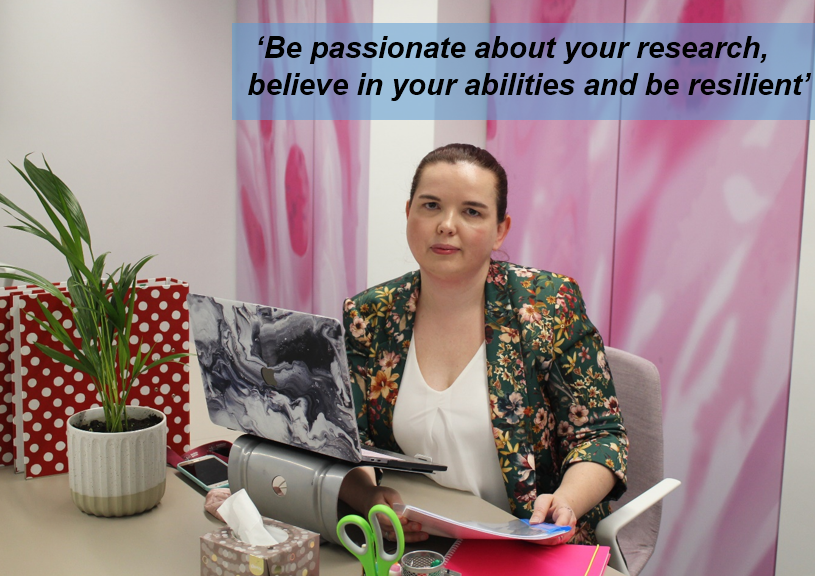An Interview with Dr Giovanna Zinzalla
Dr Giovanna Zinzalla is a visiting researcher in the Department of Pharmacology, collaborating with Prof. Laura Itzhaki to target transcription factors for therapeutic intervention. Originally from Bergamo, Italy, after completing her undergraduate degree and PhD studies at the University of Milan (Italy), she came to the University of Cambridge to carry out her postdoctoral studies at the Department of Chemistry, funded by a Marie Skłodowska-Curie Individual Fellowship.
She then became a senior research fellow at the School of Pharmacy London, funded by Cancer Research UK. She then moved to Stockholm (Sweden) at the Karolinska Institutet to start her own research group at the Microbiology, Tumor and Cell Biology (MTC) Department.
Who are you and what do you work on?
I am a Principal Investigator and my research focusses on how transcriptional regulators control gene expression programs and cell fate in normal and malignant cells. We make use of chemistry, biochemistry, biophysics and structural biology. Currently, I am working on the MYC family of transcription factors, and SWI/SNF (BAF) chromatin remodelling complexes, with the ultimate goal of developing therapies for cancer, metabolic disorders, and new approaches in regenerative medicine.
What do you love about your job?
I can make discoveries for bettering human health while training the next generation of scientists.
How/why did your research lead you to Cambridge?
I first came to Cambridge in 2004 as a Marie Skłodowska-Curie Action Fellow to carry out my postdoctoral studies with Prof. Steve Ley, in the Department of Chemistry. I continued to live in Cambridge when working with Cancer Research UK in London, at the School of Pharmacy (today part of UCL). Then even though I went to Karolinska Institutet to start my own research group, I have continued to have collaborations with labs in Cambridge. Currently I am at the Department of Pharmacology as I collaborate with Prof. Laura Itzhaki on targeting transcription factors such as MYC.
Other than science what is most important for you in life?
Family.
Do you have any advice to early-career women scientists?
Be passionate about your research, believe in your abilities and be resilient. Always be yourself. There will be people you will get along great with, and with whom you will be able to develop really exciting work relationships, but do not be put off by people you do not fit in with. What I also have found helpful, especially when I was starting out, is to build a good network of colleagues to discuss any aspects of being a woman in science.
Did you have to face any hurdles as a woman in science?
In my degree subject of organic chemistry there are more men than women, specially at the senior level, creating a male-oriented culture. Working at the interface of biology & chemistry I feel more empowered and supported as there is more diversity.
What/Who first sparked your interest in Science?
My chemistry and biology teacher at high school. She was a fantastic woman scientist!
When did you decide to become a research scientist?
During my PhD studies at the University of Milan, under the supervision of Prof. Stefano Maiorana and Dr Clara Baldoli.
Why is science fun?
It is a team effort and there is always something new to find out.
If you were to choose a laboratory superpower what would it be?
To clone the better me so I can be in the lab, teach, write grants/articles all at the same time!
What are your weaknesses and strengths?
I think that it is my strength and at the same time you could say it may be my weakness: I feel most driven when working in new and challenging areas of research.
Have you had any embarrassing scientific moments?
Years ago, while typing on my Blackberry a reply to a collaborator I kept misspelling his name, even in the multiple apology messages, calling him “Shrew”. We had a good laugh at the end, but that was a lesson well-learned about auto-predictive text!
What female scientist do you most admire and why?
Who inspired me to become a researcher was the Italian Nobel Prize winner Rita Levi di Montalcini. A formidable personality who acted as a role model and mentor for many female scientists in Italy and all over the world.
How do you relax?
I love photography and nurturing our beloved garden.

